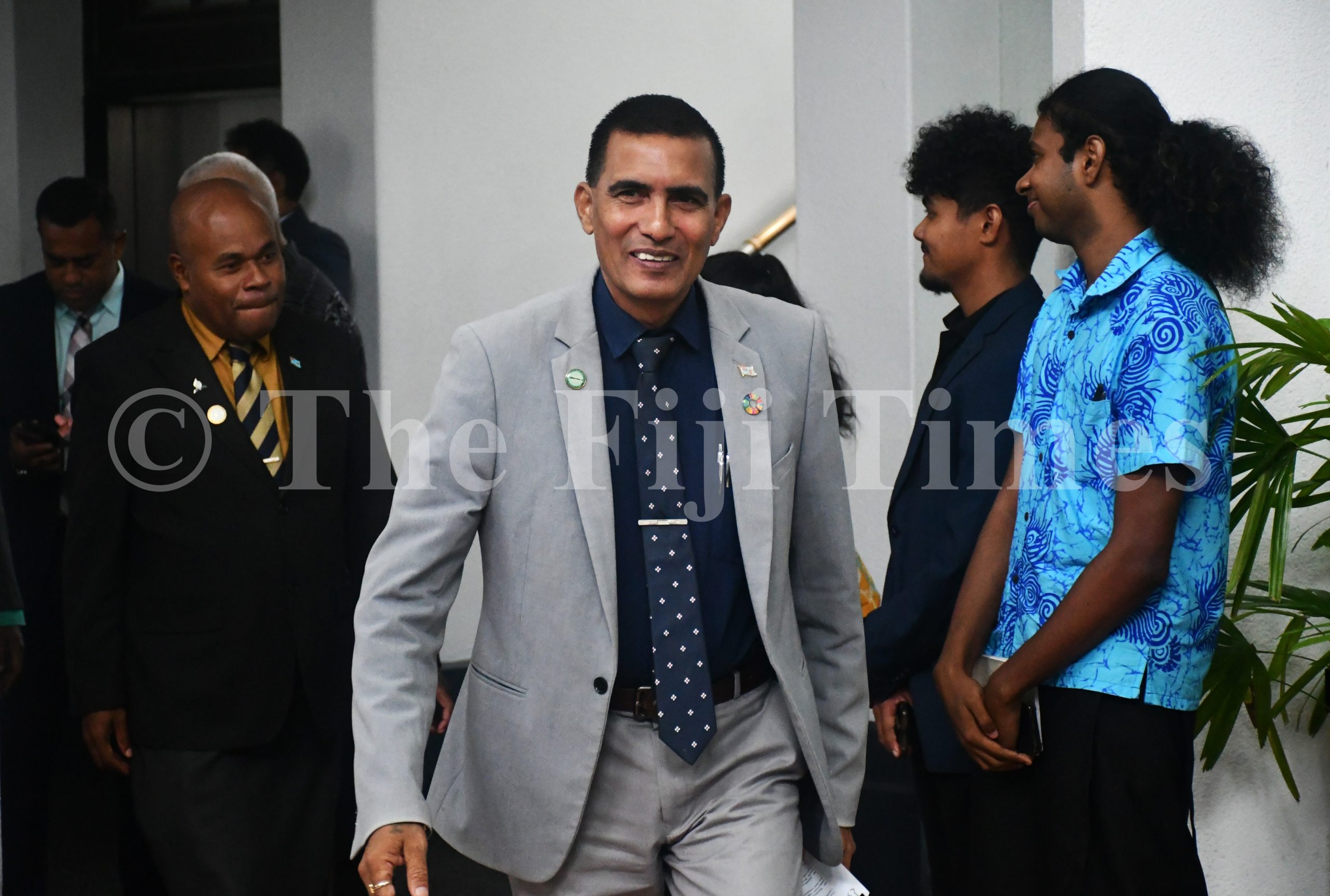Not too long ago, Opposition Leader Inia Seruiratu voiced his concerns against the Coalition government’s spate of politicised appointments across all levels of governance.
According to Seruiratu, the government was favouring fellow coalition party members for key positions within public bodies, hence deliberately bypassing established good governance processes and procedures.
Some made observations in letters written to the editor of this newspaper, penning their thoughts on what they felt was a bid to please party sympathisers and supporters.
Others sounded similar sentiments, expressing fears that the government was orchestrating a new wave of political cronyism through inadequately regulated appointments.
Just this week, Opposition MP Hem Chand said many individuals who had taken up positions at the various municipal councils in Fiji were “failed politicians”.
“Many who were very efficient and very effective, had experience and were service-oriented to all, were removed to make room for the political lackeys,” he told Parliament.
While some coalition appointments have been well deserved promotions based on merit and robust selection processes, some seem to be based on what the opposition has described as the blatant discrimination against qualified individuals who lack political backing and a deviation from fair and equal employment principles.
As such, we are subtly beginning to see the emergence of something similar to the militarisation of the civil service during Fiji’s post 2006 era when governance code on public appointments were bent to allow those with party affiliations to be appointed, promoted or appraised.
In an opinion piece this week titled The Rabuka government: A first-third assessment, Sadhana Sen, the Regional Communications Adviser at the Australian National University’s Development Policy Centre, highlighted the parallel between the Fiji First government’s public appointments, which reflected favouritism, and government’s current pattern of choices.
Sen said in the later years of the FijiFirst government there was much outcry against various FijiFirst excesses, in particular appointments that reflected cronyism. “The Coalition has attempted to be more inclusive and conciliatory than FijiFirst was, honouring most civil service appointments and contracts signed under the previous government. ”
“However, the Rabuka government has also drawn on its networks and supporters to fill leadership positions in government departments, statutory boards and diplomatic missions, with some appointments not necessarily based on merit.”
In order for the People’s Alliance Party-led coalition to continue demonstrating that its brand of leadership differs from that of Fiji First, and that it is on the path to genuine democratic rule, then some observers say the government needs to practice good governance in the way it makes public appointments. Like any far-reaching decision, Government’s appointment of public officials affects the lives of the ordinary people.
That is, fair decisions are good for the country while unjust decisions work against the people, especially the poor and disadvantaged.
Our stability and success in the area of service delivery hinges squarely on these decisions and whether they are made in the public interest or in bad faith simply to suit party interests.
While opening the 2024 Parliamentary Session, President Ratu Wiliame Katonivere urged Members of Parliament to “listen to the voice of our people, not only those who elected you but to all our citizens — young and old, men and women.”
“In doing so we will continue to respect the integrity and dignity of our Parliament. We must acknowledge aand recognise our differences; however, we must be united with one common goal ensure that we live in a progressive and prosperous nation,” Ratu Wiliame said.
While the president’s speech contains the basic recipe needed for strong leadership and political integrity, government’s biased public appointments and politically-influenced decisions, will only make the public lose trust in its shepherding ability. People in public office must serve the public interest.
They must have integrity too. These are fundamental to good government. Why is choosing party supporters over capable appointees irresponsible and ill-advised? The answer is simple.
Holders of public office cannot place themselves in a situation where they might be inappropriately swayed to make decisions that unfairly benefit sympathisers of the ruling party.
Also, they should not act or take decisions that allow them to gain a financial advantage or other benefits for themselves, their family or their associations, and without regard for equal access, fairness and justice.
We must steer away from having government boards and independent institutions that are saturated by party officials, active party supporters and financiers and failed politicians.
Good governance experts agree that choosing people based on their political pedigree instead of their wealth of knowledge, skills and experience destroys the leadership and independence of state institutions and creates an environment where political patronage and corruption may thrive in.
While the ball is in government’s court, as citizens, we must not cease to demand that positions for all public boards and statutory organisations be advertised and that appointments are made by a panel that is independent as much as possible.
Lastly, we not only need better processes in place but ones that are legislated and enforced. Until we meet on this same page same time next week, stay blessed, stay healthy and stay safe.



